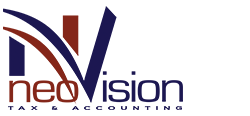April 18 came and went and hopefully, it wasn’t a painful (tax) day for you. Believe it or not, it’s never too early to start thinking about next year. If filing your taxes was a headache and a hassle in 2022, here are a few tips to get you prepared for April 15, 2023.
Putting yourself in the best tax position involves planning early rather than waiting until the last minute, here are five tips to get your taxes on track for 2023.
Make Withholding Adjustments, If Needed
If there are any changes that have occurred since the start of the year, taxpayers will want to update their withholdings. For instance, if you had a new baby in January or later, you should update your W-4 to reflect that. Depending on how many dependents you have, that could help out in terms of providing better cash flow throughout the year and increase your deductions at tax time.
Document, Document, Document
Throughout the year, keep track of any deductions you will need to account for later such as mileage expenses, donations to charity, or business expenses, and allocate them. Chances of you remembering all of these deductions at tax time are pretty slim so record it now, don’t wait.
Rather than just keeping a stack of paper receipts, I recommend taking a picture of important documents and receipts to store in QBO, Dropbox or Google Drive. Also, there are plenty of mileage tracking apps available that are easy to use.
Track Crypto Trades
The IRS treats cryptocurrency like property for tax purposes, and traders of digital assets could owe taxes when they make a profit selling or exchanging those assets.
If you do a high volume of trades, I suggest getting a crypto tax software such as TokenTax, Cointracker, or Koinly to track trades. These services make things easier for both you the taxpayer and for your accountant when filing your return.
Plan Ahead for Changes
If there are changes you anticipate this year that could impact your 2023 return, be sure to look at the tax implications, because they could impact your decision-making.
For example, if you are considering purchasing an investment like a property to be rented out on Airbnb or Vrbo, be sure you know how many days you plan on renting it out to meet the IRS threshold.
For instance, if you buy a property that you live in on occasion but also rent out to others, there are limitations on the rental expenses you can deduct, according to IRS rules. However, if you are not using the property for personal use at all, it is treated as a business and you’re able to deduct your full expenses.
Hire a Tax Professional Now
Regardless of your personal situation, taking tax planning seriously involves thinking ahead and well…planning. Don’t wait to interview accountants once the tax season starts, hire one now so they can help you plan throughout the year and make filing your return quick and easy. If you would like to schedule a free no obligation initial consultation you can contact us here.

